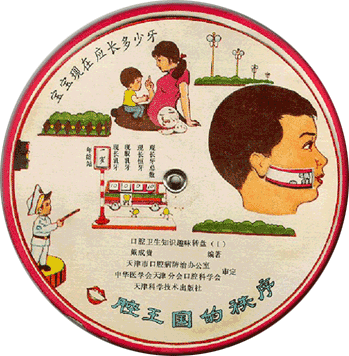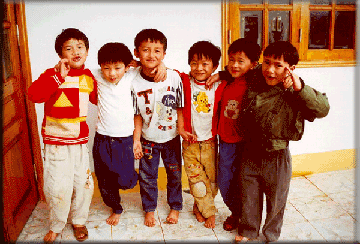China - An oral health education programme in Wuhan City
China - An oral health education programme in Wuhan City
Introduction
The Hubei Province Committee for Oral Health together with the WHO Collaborating Centre for Community Oral Health Programmes and Research, University of Copenhagen, Denmark in 1998 conducted projects in primary schools in Wuhan City, China. This presentation is based on the publication by Petersen PE (WHO, HQ, Geneva), Peng B, Tai B, Bian Z and Fan M. published in 2004.

Background and Rationale
Oral health education to schoolchildren is given high priority in China. Nation-wide campaign, the 'Love Teeth Day', has been conducted annually since 1989 and it's success emphasises the commitment of China to oral health promotion.
Systematic school-based oral health education programmes however have yet to be established at national levels. Hence, this demonstration project was implemented in 1998 in the Hongshan District of Wuhan City, Hubei Province, central China. The fluoride content of drinking water in this district is low (0.2ppm) and dental care is available from one hospital only.

Project Outline
Six primary schools were chosen randomly from this district -3 experimental and 3 control schools with 3 years follow-up. A total of 404 grade1 children and 33 teachers and 399 grade1 children and 336 teachers (740 children and 369 teachers) were included in the experimental and control groups respectively. The experimental schools applied the WHO Health Promoting Schools Project concepts throughout the 3-year period.
- Teachers received oral health education training through workshops conducted by district education officers and dentists.
- Classroom-based oral health education, focus on diet and nutrition, and integration of oral health into general health and school education activities.
- Students took part in daily oral hygiene instructions by teachers.
- Mothers were encouraged to be present during these sessions.
- Tooth brushing twice a day with fluoride toothpaste was recommended.
- Monthly oral hygiene education was part of the curriculum.
- Throughout the project, public health dentists supervised activities in schools.

we brush twice a day
Achievements
The baseline oral examination was performed in September 1998 and follow-up examination in October 2001. 803 children and their mothers and 369 teachers participated at baseline and after 3 years 666 children and mothers and 347 teachers remained.
- The caries increments (DMFT/DMFS) were comparable in both groups but the f/F components were higher among the experimental group.
- More children in the experimental group adopted regular oral health behaviour such as tooth brushing, recent dental visit, use of fluoride toothpaste compared to the controls.
- Mothers showed significant development in oral health attitudes and self-care in experiment group.
- The teachers in the experimental schools also showed higher oral health knowledge and more positive attitude.
Conclusion
The programme had a positive effect in relation to oral health behaviour and education but no improvement on caries situation was demonstrated.

join the programme..?
Reference
Petersen PE, Peng B, Tai B, Bian Z and Fan M. Effect of a school-based oral health education programme in Wuhan City, Peoples republic of China. Internat. Dent J. 2004; 54: 33-41.
